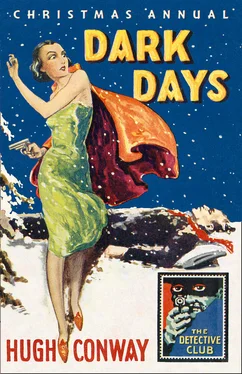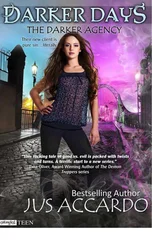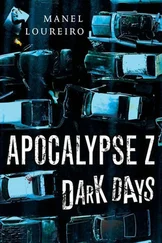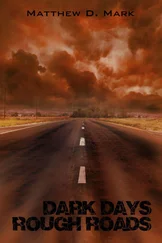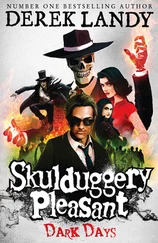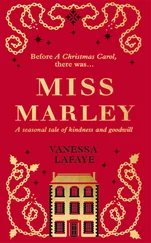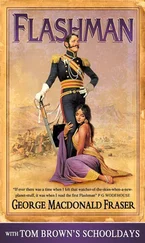The first effect of this intelligence was to cause me to blame my haste. I must have missed her; no doubt passed her on the road. No; such a thing was impossible. The way was a narrow one. The moon still gave some light. If I had met Philippa, I must have seen her. She must have seen me, and would then have stopped me. She could not have gone the way I came.
But where was she? In what direction was I to seek her? Argue the matter as I would—loath as I was to allow myself to be convinced, I was bound to decide that she must have taken the path to Roding. There was no other. She had gone, even as I was going, to meet Ferrand. She may have started, intending to come to me; but at the last moment a desire to see the man once more—I fondly hoped for the purpose of heaping reproaches on his head—had mastered her. Yes, whatever her object might be, she had gone to meet him. And my heart sank as conviction was carried to it by the remembrance that coupled with her refusal to permit me to fetch her was an assertion that she had something to do before she came to me. That, as I now read it, could be but one thing—to meet this man!
Never again, if I can help it, shall his voice strike on her ear! Never again shall their eyes meet! Never again shall the touch of even his finger contaminate her! Let me follow, and stand between her and the scoundrel. If they meet he will wound her to the heart. Her pride will rise; she will threaten. Then the coward will try another line. He will plead for mercy; he will swear he still loves her; he will bait his hook with promises. She will listen; hesitate; perhaps yield, and find herself once more deceived. Then she will be lost to me for ever. Now she is, in my eyes, pure as when first we met. Let me haste on, overtake, pass her; meet her betrayer, and, if needful, strike him to the ground.
As I turned from the house I became aware that a great and sudden change had come over the night. It seemed to me that, even in the few minutes which I had spent in considering what to do, the heavy clouds had banked and massed together. It was all but pitch-dark; so dark that I paused, and drawing from my pocket the lantern with which William’s foresight had provided me, managed after several trials to light it. Then, impatient at the delay, I sped up the road.
I was now almost facing the wind. All at once, sharp and quick, I felt the blinding snow on my face. The wind moaned through the leafless branches on either side of the road. The snowflakes whirled madly here and there. Even in my excitement I was able to realise the fact that never before had I seen in England so fierce a snow-storm, or one which came on so suddenly. And, like myself, Philippa was abroad, and exposed to its full fury. Heavens! She might lose her way, and wander about all night.
This fear quickened my steps. I forced my way on through the mad storm. For the time all thought of Sir Mervyn Ferrand and vengeance left my heart. All I now wanted was to find Philippa; to lead her home, and see her safe beneath my roof. ‘Surely,’ I said, as I battled along, ‘she cannot have gone much further.’
I kept a sharp look-out—if, indeed, it can be called a look-out; for the whirling snow made everything, save what was within a few feet of me, invisible. I strained my ears to catch the faintest cry or other sound. I went on, flashing my lantern first on one and then on the other side of the road. My dread was, that Philippa, utterly unable to fight against the white tempest, might be crouching under one of the banks, and if so I might pass without seeing her or even attracting her attention. My doing so on such a night as this might mean her death.
Oh, why had she not come as promised? Why had she gone to meet the man who had so foully wronged her? After what had happened, she could not, dared not love him. And for a dreary comfort I recalled the utter bitterness of her accent last night when she turned to me and said, ‘Basil, did you ever hate a man?’ No, she could not love him!
These thoughts brought my craving for vengeance back to my mind. Where was Ferrand? By all my calculations, taking into account the time wasted at starting, I should by now have met him. Perhaps he had not come, after all. Perhaps the look of the weather had frightened him, and he had decided to stay at Roding for the night. I raged at the thought! If only I knew that Philippa was safely housed, nothing, in my present frame of mind, would have suited me better than to have met him on this lonely road, in the midst of this wild storm. If Philippa were only safe!
Still no sign of her. I began to waver in my mind. What if my first supposition, that I had passed her on the road, was correct? She might be now at my cottage, wondering what had become of me. Should I go further or turn back? But what would be my feelings if I did the latter, and found when I arrived home that she had not made her appearance?
I halted, irresolute, in the centre of the road. Instinctively I beat my hands together to promote circulation. I had left my home hurriedly, and had made no provision for the undergoing of such an ordeal as this terrible, unprecedented snow-storm inflicted. In spite of the speed at which I had travelled, my hands and feet were growing numbed, my face smarted with the cold. Heaven help me to decide aright, whether to go on or turn back!
The decision was not left to me. Suddenly, close at hand, I heard a wild peal, a scream of laughter which made my blood run cold. Swift from the whirling, tossing, drifting snow emerged a tall grey figure. It swept past me like the wind; but as it passed me I knew that my quest was ended—that Philippa was found!
She vanished in a second, before the terror which rooted me to the spot had passed away. Then I turned and, fast as I could run, followed her, crying as I went, ‘Philippa! Philippa!’
I soon overtook her; but so dark was the night that I was almost touching her before I saw her shadowy, ghost-like form. I threw my arms round her and held her. She struggled violently in my grasp.
‘Philippa, dearest! It is I, Basil,’ I said, bending close to her ear.
The sound of my voice seemed to calm her, or I should rather say she ceased to struggle.
‘Thank heaven, I have found you!’ I said. ‘Let us get back as soon as possible.’
‘Back! No! Go on! Go on!’ she exclaimed. ‘On, on, on, up the road yet awhile—on through the storm, through the snow—on till you see what I have left behind me! On till you see the wages of sin—the wages of sin!’
Her words came like bullets from a mitrailleuse. Through the night I could see her face gleaming whiter than the snow on her hood. I could see her great, fixed, dark eyes full of nameless horror.
‘Dearest, be calm,’ I said, and strove to take her hands in mine.
As I tried to gain possession of her right hand something fell from it, and, although the road was now coated with snow, a metallic sound rang out as it touched the ground. Mechanically I stooped and picked up the fallen object.
As I did so Philippa with a wild cry wrested herself from the one hand whose numbed grasp still sought to retain her, and, with a frenzied reiteration of the words ‘The wages of sin!’ fled from me, and was lost in the night.
Even as I rushed in pursuit I shuddered as the sense of feeling told me what thing it was I had picked up from the snowy ground. It was a small pistol! Cold as the touch of the metal must have been, it seemed to burn me like a coal of fire. Impulsively, thoughtlessly, as I ran I hurled the weapon from me, far, far away. Why should it have been in Philippa’s hand this night?
I ran madly on, but not for long. My foot caught in a stone, and I fell, half stunned and quite breathless, to the ground. It was some minutes before I recovered myself sufficiently to once more stand erect. Philippa must now have obtained a start which, coupled with her frenzied speed, almost precluded the possibility of my overtaking her.
Читать дальше
